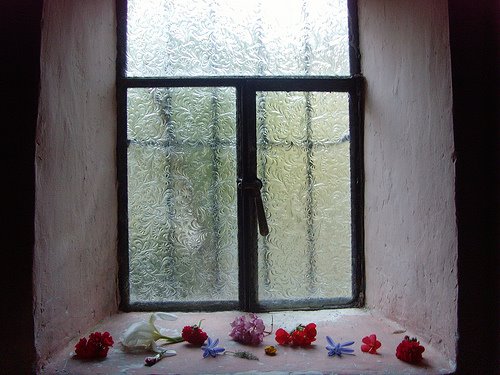Acedia
"Anecdotally, in Tsarist Russia, if a wealthy noble woman came down with long-term depression (which can overlap with acedia)allegedly a trusted antidote was to put her in an old peasant woman's house and make her do many of the basic household duties such as fetching the water, sweeping the floor, chopping wood etc. Basic manual tasks were also considered vital to keep spirits up in the Desert Father tradition of early Christian monasticism."
- wiki, on acedia
http://en.wikipedia.org/wiki/Acedia
ref: (it's not about the gay part!)
http://www.patheos.com/blogs/unequallyyoked/2014/11/it-is-not-good-for-man-to-be-alone-a-review-of-gay-and-catholic.html
http://www.hermitary.com/solitude/acedia.html
It is also good to recall what Abba Moses, one of the most experienced of the fathers, told me. I had not been living long in the desert when I was troubled by listlessness [i.e., acedia]. So I went to him and said: Yesterday I was greatly troubled and weakened by listlessness, and I was not able to free myself from it until I went to see Abba Paul. Abba Moses replied to me by saying: So far from freeing yourself from it, you have surrendered to it completely and become its slave. You must realize that it will attack all the more severely because you have deserted your post, unless from now on you strive to subdue it through patience, prayer and manual labor.
... John Cassian went further than his conversation with Abba Moses to describe the physical symptoms so literally, even to the hour of the day when they peak, that acedia became known as the "noonday devil." He provides an excellent description of the psychology of acedia as well, indicating that acedia is a "tedium or perturbation of heart ... akin to dejection and especially felt by wandering monks and solitaries, a persistent and obnoxious enemy to such as dwell in the desert." He goes on:
The listlessness of acedia is akin to a feeling of inertness, John Cassian notes, producing no spiritual fruit, a sense of any practice being "empty of spiritual profit." John's remedy, following desert tradition, is a level of sustained activity approximating rigorous physical labor and what were to be called works of mercy, which fend off cynicisms.
- wiki, on acedia
http://en.wikipedia.org/wiki/Acedia
ref: (it's not about the gay part!)
http://www.patheos.com/blogs/unequallyyoked/2014/11/it-is-not-good-for-man-to-be-alone-a-review-of-gay-and-catholic.html
http://www.hermitary.com/solitude/acedia.html
It is also good to recall what Abba Moses, one of the most experienced of the fathers, told me. I had not been living long in the desert when I was troubled by listlessness [i.e., acedia]. So I went to him and said: Yesterday I was greatly troubled and weakened by listlessness, and I was not able to free myself from it until I went to see Abba Paul. Abba Moses replied to me by saying: So far from freeing yourself from it, you have surrendered to it completely and become its slave. You must realize that it will attack all the more severely because you have deserted your post, unless from now on you strive to subdue it through patience, prayer and manual labor.
... John Cassian went further than his conversation with Abba Moses to describe the physical symptoms so literally, even to the hour of the day when they peak, that acedia became known as the "noonday devil." He provides an excellent description of the psychology of acedia as well, indicating that acedia is a "tedium or perturbation of heart ... akin to dejection and especially felt by wandering monks and solitaries, a persistent and obnoxious enemy to such as dwell in the desert." He goes on:
When this [acedia] besieges the unhappy mind, it begets aversion from the place, boredom with one's cell, and scorn and contempt for one's brethren, whether they be dwelling with one or some way off, as careless and unspiritual-minded persons.
The listlessness of acedia is akin to a feeling of inertness, John Cassian notes, producing no spiritual fruit, a sense of any practice being "empty of spiritual profit." John's remedy, following desert tradition, is a level of sustained activity approximating rigorous physical labor and what were to be called works of mercy, which fend off cynicisms.

